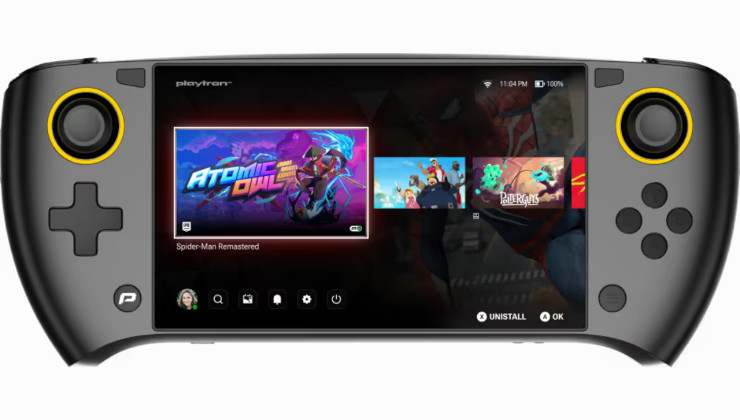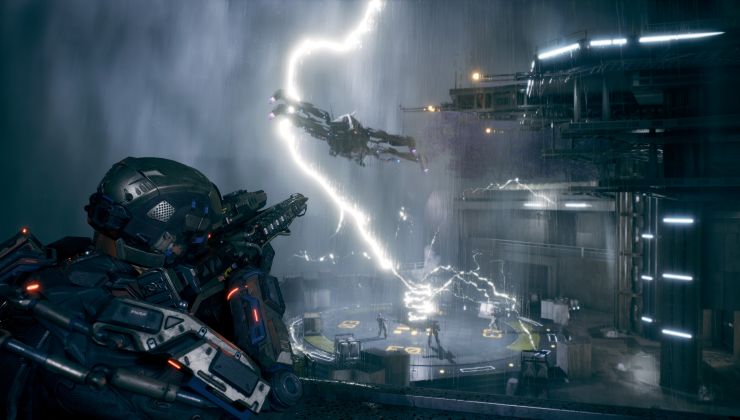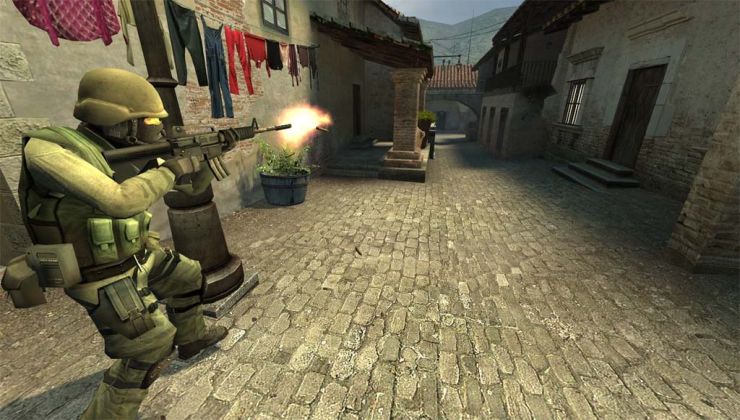Stadia is something we don't really talk about here too much now, as Google has let it slide considerably from the original aim but it's still going and it seems Google still has some interesting plans for it.
There's an upcoming Google For Games Dev Summit on March 15, which includes Android and Stadia. For the Stadia service that runs on Debian Linux, Google has a few talks including "Play Testing Made Easy on Stadia", "Stadia Adventures in slow server code on Unity" and "Profiling on Stadia" but the perhaps bigger one is titled "How to write a Windows emulator for Linux from scratch?" that notes:
Detailed overview of the technology behind Google's solution for running unmodified Windows games on Stadia. This is a deep technical walkthrough of some of the core concepts with the goal to allow curious programmers to better understand such technologies and potentially to build their own.
We don't know yet if it will be open source but the bigger question perhaps is why they didn't go with all the existing code that has already proven itself? We are of course talking about Wine / Proton, DXVK and VKD3D-Proton which powers Windows games on Linux desktop and the Steam Deck. It's already shown to have great performance.
It's an obvious move for Stadia though to help increase the game library, the same reason Valve created Proton from Wine to bring more games to Linux systems. We'll be taking a look over the talk on March 15 and will make some notes for you.
Although I fully expect that Google will not release the source code, and that we will benefit from it not at all.
One of the good things about Stadia was that it could potentially bring new native Linux ports (that could also be made available for regular GNU/Linux systems outside of Stadia). And for Stadia users, it was also much better because these ports were optimised for Stadia - basically a custom console-like ports. Google is killing all of this now and bringing a GeForce Now-like experience to Stadia (but you will have to buy the games again, unlike GeForce Now). I understand their reasons (they are trying to save a dying platform which Stadia sadly is), but this is not a good thing at all, at least in my opinion.
"One of the good things about Stadia was that it could potentially bring new native Linux ports"
That's what I thought, but if we look behind, how many games Stadia has bring to the Linux market ?
99% of the Stadia games remains like this.. a potential.. but without real effect.
Publishers just see Stadia as an opportunity to have the ultimate DRM, nothing more.
Last edited by DebianUser on 10 Mar 2022 at 1:21 pm UTC
One of the good things about Stadia was that it could potentially bring new native Linux ports (that could also be made available for regular GNU/Linux systems outside of Stadia).Unfortunately we have seen none of that as none of the games that were ported to Stadia came to desktop Linux afterwards.
I remember developers commenting that Stadia is quite different from desktop Linux. I have no idea what is actually different, but I could easily imagine that they have their own stuff for input handling, rendering, etc. You know, just like Android is technically a Linux system under the hood, but the API's that you are actually coding against are completely custom.
If they're talking about "write a Windows emulator for Linux" then it can't be something like Wine, because Wine is not an emulator, is it?
Wine originally stood for WINdows Emulator and did releases on an emulation newsgroup. The complaint about not being an emulator is to distinguish it from hardware emulation. However, OS emulation is also a form of emulation and the wine developers are unique in refusing to acknowledge that they are doing OS emulation.
But hey, if they want to make their own translation layer - the more the merrier, as long as it will be open source. Wine can benefit from that too then.
Last edited by Shmerl on 10 Mar 2022 at 7:19 pm UTC
I am ingrigued, but I have my doubts. But let's see the talk.
I'd like if they put that open source, I think wine/proton do a good job, but if they have an acr up their sleves it would be nice.
I doubt that it will be open source, but who knows.
And about Stadia games on desktop it depends on the developer !! maybe they are not interested!! which can change with steam deck, but it sure helps because Stadia runs Linux and Vulkan !!!! but the interest has to be of the developer, with Google not being able to simply force them to do this !!
One of the good things about Stadia was that it could potentially bring new native Linux ports (that could also be made available for regular GNU/Linux systems outside of Stadia). And for Stadia users, it was also much better because these ports were optimised for Stadia - basically a custom console-like ports. Google is killing all of this now and bringing a GeForce Now-like experience to Stadia (but you will have to buy the games again, unlike GeForce Now). I understand their reasons (they are trying to save a dying platform which Stadia sadly is), but this is not a good thing at all, at least in my opinion.
Well, not to beat a dead horse yet again, but it's a given fact nowadays that for the foreseeable future "gaming on Linux" = "gaming on Proton/Wine". Forget native ports, let alone native development from scratch, no one is willing to invest in that (I wouldn't either). If you look at things from this perspective, then more services/vendors adopting Proton/Wine and enabling Windows games to run on their Linux-in-disguise platform can only mean more incentive for developers to dedicate more resources into supporting the Linux toolchain that enables Windows games to run on Linux - aka, Proton/Wine. So it's a good thing after all. One can only hope that GOG will also eventually see the light and integrate Proton with their store.
The above is based on my guess that Google are talking out of their a$$es and they either intend to talk in theoretical terms about how one would go about developing a Wine-like solution, or they'll present some "new" solution that is really also based on Wine. If they've managed to actually create a completely new and competitive solution, then big kudos to them but this will completely change the game for Linux and gaming (for the worse), because now suddenly developers will not be able to target one single Linux toolchain (i.e. Proton/Wine) to make their games run on everything Linux-based, but they instead will have to choose to develop for a specific platform and its associated toolchain (i.e. Steam, Stadia, maybe Luna in the future, etc) which will fragment the Linux gaming landscape even more.
Oh well, time will tell.
Proton is opensource and may have Google work with Valve to implement, as Steam will officially support CHromebooks !!! proton may have been designed for all 3 platforms: Stadia, Steam Deck and Steam for Chormebooks!!
And about Stadia games on desktop it depends on the developer !! maybe they are not interested!! which can change with steam deck, but it sure helps because Stadia runs Linux and Vulkan !!!! but the interest has to be of the developer, with Google not being able to simply force them to do this !!
Ah, yes, that's also a scenario I can very well imagine: "So dear people, let's discuss this Proton thingamajig that our good friends over at Valve have recently created for their Steam Deck. Oh, did we mention that you can now enjoy the entirety of the Steam catalogue also on our Chromebooks? No? Well, there you have it."
Last edited by Nocifer on 10 Mar 2022 at 8:35 pm UTC
If they're talking about "write a Windows emulator for Linux" then it can't be something like Wine, because Wine is not an emulator, is it?
Wine originally stood for WINdows Emulator and did releases on an emulation newsgroup. The complaint about not being an emulator is to distinguish it from hardware emulation. However, OS emulation is also a form of emulation and the wine developers are unique in refusing to acknowledge that they are doing OS emulation.
Actually the project first got it's name WINE as "Wine Is Not an Emulator” in August 1993 between the release of 0.2.0 and 0.3.0, before this the project was called "the Windows loader" / Wabi.
And no WINE is not a OS emulator, it's a reimplementation of the Windows API. Not really sure how a emulator for a modern OS would look like but perhaps this one from Google is. Perhaps they emulate it down to how e.g the Windows Scheduler works to make games get the 100% Windows experience that WINE can never do.
If they DO plan to write it from scratch, I'm betting that Amazon's Proton plans will get to market long before Google.
By the wording of the Google quote I would say that it sounds like they have already built this.
Last edited by F.Ultra on 10 Mar 2022 at 9:13 pm UTC
it's a given fact nowadays that for the foreseeable future "gaming on Linux" = "gaming on Proton/Wine". Forget native ports, let alone native development from scratch, no one is willing to invest in that (I wouldn't either).
I disagree. Look at Godot. They are investing into Linux development of their engine fine and it will enable more native games.













 How to set, change and reset your SteamOS / Steam Deck desktop sudo password
How to set, change and reset your SteamOS / Steam Deck desktop sudo password How to set up Decky Loader on Steam Deck / SteamOS for easy plugins
How to set up Decky Loader on Steam Deck / SteamOS for easy plugins
See more from me